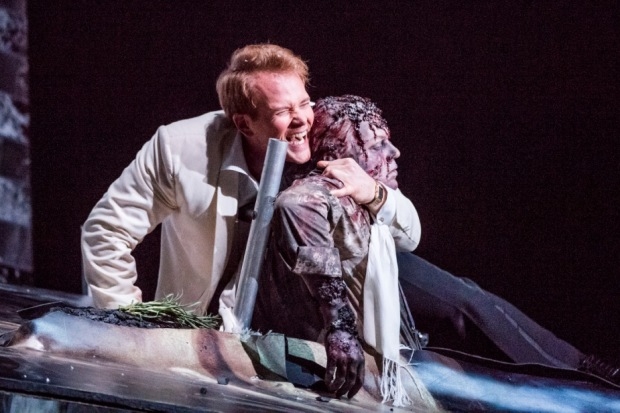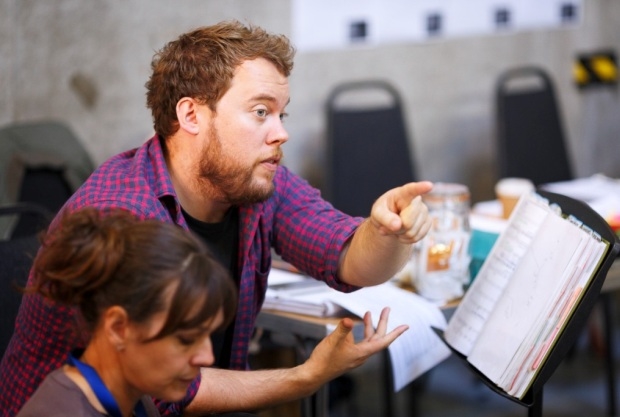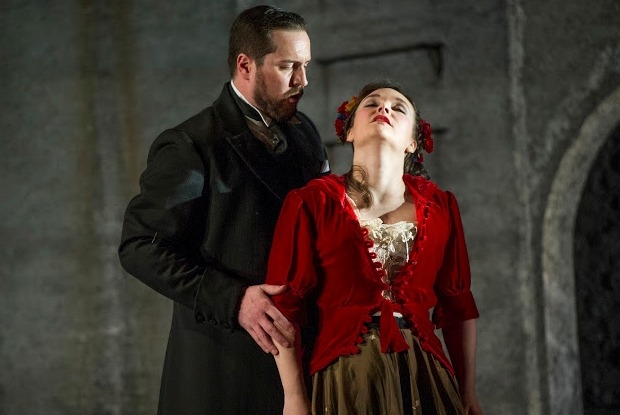Glyndebourne: Pressing ‘Pause’

©Tristram Kenton
As part of an autumn tour that also includes a full revival of Don Giovanni in the kinetic production by Jonathan Kent and Paul Brown, Glyndebourne is experimenting. On you.
For one evening at every tour stop they're staging a complementary event called Don Giovanni: Behind the Curtain, and it's something entirely new. Presenter Paul Rissmann and revival director Lloyd Wood have concocted an event that demystifies opera by explaining exactly what is happening on stage during a performance of Mozart's masterpiece.
The singers and sets will be those of the full production, but Rissmann will act as a kind of roving reporter and, as the company puts it, 'press the pause button' and delve into the music, singing, make-up, props and stage direction in order to enhance the audience's understanding.
It's something he's been doing for years in his Naked Classics series with the Royal Scottish National Orchestra, but this is the first time he's brought his presenting technique to opera.
"We've extracted all the best bits of Don Giovanni and we're using them to isolate and identify the key building blocks that make opera such a unique art form. We'll have lots of fun with the music and language, and we'll be interviewing the performers on stage."
Wood, for his part, looks after the practical side. "We worked out our cuts and edits and then chose excerpts that had enough variety to allow us to shape a theatrical arc as well as to explore the opera itself and the process of putting it on.
"What's been important for both of us is that you feel you're part of a theatrical experience. You're not simply receiving a pared down or spliced together version of the score, but you get to look at the Rubik's Cube of opera in production. From every single side."

© James Bellorini
It's a puzzle that Wood has already solved for himself as far as Don Giovanni is concerned. He's spent most of 2016 with the old roué: as well as reviving Kent's famous staging (for the second time) the young director can also boast his own distinguished take on this not-so-fondly nicknamed 'director's graveyard'. Earlier this year he directed an outstanding new production for English Touring Opera, one that I noted in my five-star review "gets practically everything right". Yet he's self-effacing about his contribution to Don Giovanni: Behind the Curtain.
"I've found it completely inspiring just spending time with Paul and understanding his forensic approach to exploring the material. Paul has refracted the whole piece through a prism."
Rissmann's secret weapon is enthusiasm, and it's infectious. "Behind the Curtain is about exploring and engaging. It's about meeting the singers and others, be they a costume or lighting designer, a dresser or a conductor, and understanding and appreciating their craft.
"Most importantly, it's a really entertaining evening and a unique project that allows the audience time to explore both the music and the theatre and all the magic of opera."
Surely there's a risk that potential patrons, who may have paid to see either Madama Butterfly or Don Giovanni—or both—during the week's residency at each venue, will be reluctant to fork out for a third evening. But Glyndebourne is adamant that they should consider it, and the company is throwing its full weight behind the project. "Don Giovanni: Behind the Curtain has been conceived for anyone interested in discovering more about opera. It's not a reduced or simplified version of Mozart's score, it is a complete theatrical event in itself."
Don Giovanni: Behind the Curtain plays at Glyndebourne (28 October), Milton Keynes (10 November), Canterbury (17 November), Norwich (24 November), Woking (1 December) and Plymouth (8 December).











